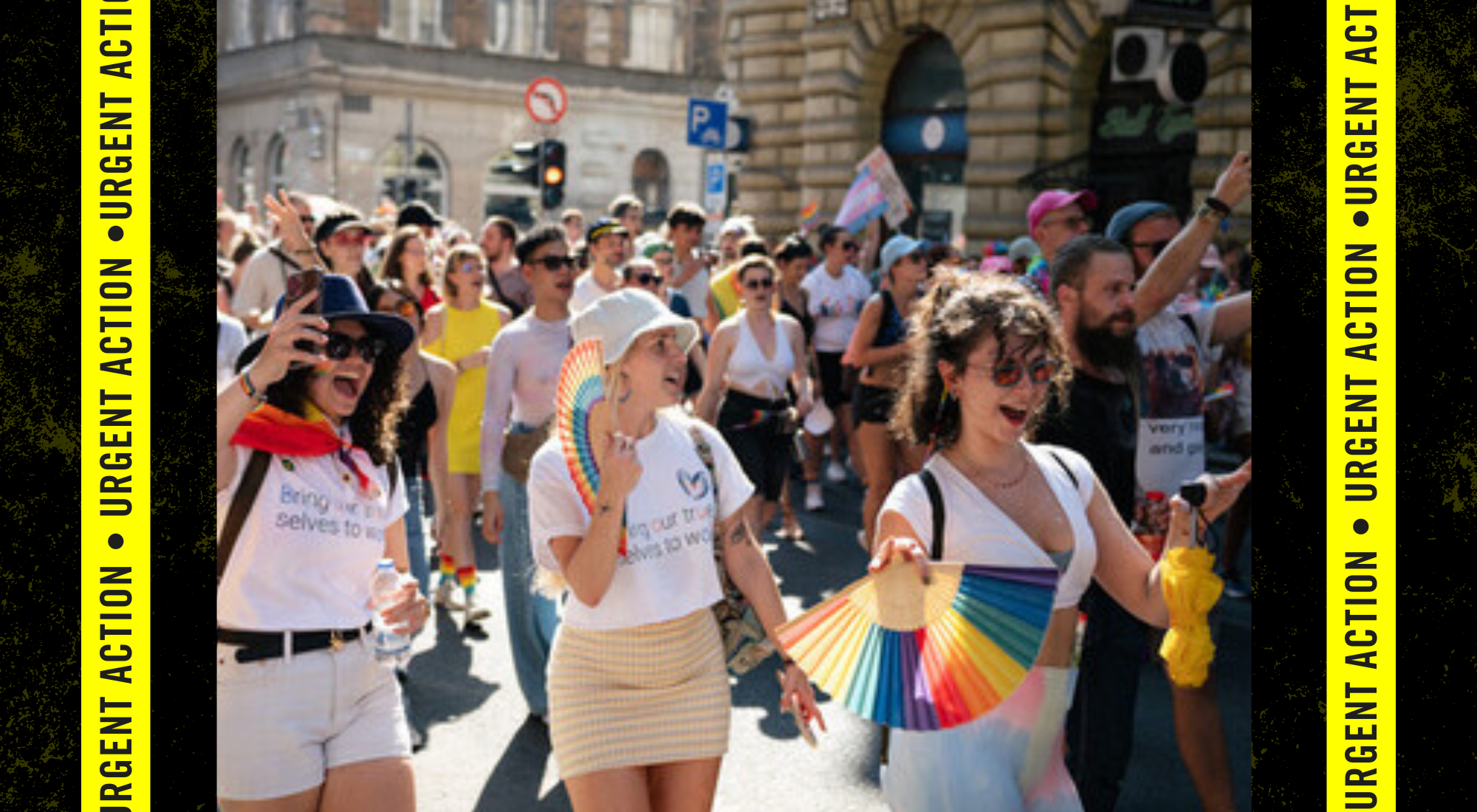On March 18, Hungary’s Parliament rushed through a new law that effectively bans Pride marches. It uses the country’s anti-LGBTI “Propaganda Law” to justify blocking events that show support for LGBTI people. The law wrongly claims that LGBTI visibility is “harmful to children.”
This dangerous law gives authorities the power to cancel Pride events, fine participants, and jail organizers for up to one year. It also allows the use of facial recognition technology to monitor and identify people at protests. This puts everyone’s privacy at risk and creates a climate of fear.
This is a serious attack on human rights. It violates the rights to peaceful protest, free expression, privacy, and equality.
Hungarian authorities must protect the right to protest. They must allow the Budapest Pride march to go ahead safely on June 28, without threats or restrictions. It’s also time to scrap this harmful law and stand up for the rights of LGBTI people and communities.
Here’s what you can do:
Write to the Chief of Police in Budapest urging his office to:
- Reject this unjust law.
- Uphold Hungary’s human rights commitments.
- Ensure that the June 28 Budapest Pride march can proceed peacefully and without discrimination, harassment, fear, or violence.
Write to:
Dr. Terdik Tamás
Chief of Police
Budapest Police Headquarters,
Postal address: 1557 Budapest, Pf.: 1
E-mail: budapest@budapest.police.hu
Salutation: Dear Chief of Police,
And copy:
Her Excellency Maria Eva Vass-Salazar
Ambassador
Embassy of Hungary
299 Waverley Street
Ottawa, ON K2P 0V9
Tel: (613) 230-2717; (613) 230-8215 Fax: (613) 230-7560
Email: mission.ott@mfa.gov.hu
A decade of attacks on LGBTI rights
For over ten years, Hungary’s government has used harmful language and policies to target LGBTI people. It has also gone after civil society groups that work for equality.
On March 11, members of the ruling Fidesz party proposed changes to Hungary’s Constitution. Their goal was to create a legal basis to ban the annual Budapest Pride march.
Just days later, on March 17, the same members introduced another bill to change Hungary’s law on public gatherings. Parliament rushed it through the next day without public input. The law—now known as Act III of 2025—came into effect on April 15.
What the new law says
Act III of 2025 uses vague language to ban public events that support LGBTI rights or show LGBTI themes. Under this law, organizing or holding such events is a crime. Attending them is a minor offence.
Anyone who joins a banned Pride march could be fined up to 200,000 HUF (about 500 EUR). Organizers could face criminal charges and up to one year in prison. The law also expanded police powers to shut down events more easily.
Organizers now have to notify police of any planned assembly at least one month in advance. That means Pride organizers can’t even begin the notification process for the June 28 Budapest Pride march until May 28. Promoting an event before this notice is accepted by police is also considered an offence.
A new threat to privacy
The law also opens the door to widespread use of facial recognition technology (FRT). Authorities can now use FRT for any minor offence, including those linked to assemblies.
This gives police and other officials the power to scan people’s faces in public spaces if they believe it helps “prevent, detect or stop” an offence. In practice, this could mean using FRT to track people attending Pride events—raising serious concerns about mass surveillance and the right to privacy.
A direct target on basic freedoms
Taken together, these changes severely restrict the rights of LGBTI people and anyone who supports them. The law treats public support for LGBTI rights as illegal “content” and aims to erase LGBTI people from public life.
It also threatens everyone’s freedom of expression and peaceful protest. By creating fear and uncertainty, the law silences voices of dissent and discourages people from standing up for their rights.
Amnesty International reminds Hungarian authorities that they have a duty under international law to protect the right to peaceful assembly. This right should never depend on government permission. Notifying police about a protest should be about sharing information—not asking for approval.
Any restrictions must follow the law, serve a legitimate public interest, and be the least harmful option available. Banning a protest should only happen in exceptional cases, and police should avoid the use of force whenever possible. When force is used, it must always be necessary, limited, and free from discrimination.
Please take action as soon as possible until July 15, 2025. The UA will be duly updated should there be the need for further action.




























